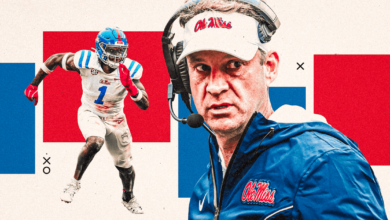What players’ reaction to Sinner’s doping case says about their confidence in their sport

On Tuesday, the International Tennis Integrity Agency (ITIA) announced that it had sanctioned men’s world number one Jannik Sinner for testing positive twice for clostebol, an anabolic steroid and banned substance. It also announced that an independent tribunal convened by the ITIA had reviewed the investigation into Sinner’s anti-doping case and found “no fault or negligence” on the Italian’s part.
The ITIA stripped Sinner of his ranking points, prize money and results from the BNP Paribas Open in Indian Wells, California, where the first positive test occurred on March 10. The second occurred on March 18. Sinner was provisionally suspended — as is required for an adverse analytical finding (AAF) for an unspecified substance — after both tests. On both occasions, Sinner appealed the suspensions and an independent board convened by the ITIA reviewed and upheld the appeals, allowing him to continue playing.
“I will continue to do everything I can to ensure that I remain compliant with the ITIA anti-doping program and I have a team around me who are diligent in their own compliance,” Sinner said in a statement Tuesday.
All of these processes follow the Tennis Anti-Doping Program (TADP) rules. But that hasn’t stopped the anger of Sinner’s fellow players.
“Different rules for different players,” said Canadian Denis Shapovalov. “I can’t imagine what every other player who has been suspended for contaminated materials is feeling right now,” he wrote a minute earlier.

Shapovalov expressed contempt for the handling of the case (Minas Panagiotakis/Getty Images)
Frenchman Lucas Pouille said: “Maybe they shouldn’t fool us anymore, right?”
Nick Kyrgios, the 2022 Wimbledon runner-up, said: “Whether it was accidental or planned, you get tested twice with a banned (steroid) substance… you should be out for two years.”
American player Tennys Sandgren added: “This is ridiculous. Second-hand steroids through a massage?? ATP always look out for their money makers. Good for business, bad for transparency and integrity.”
Perhaps most telling was the opinion of Tara Moore. The ITIA provisionally suspended Moore in May 2022 after she tested positive for the anabolic steroids boldenone and nandrolone. Moore appealed her provisional suspension, as did Sinner, but her explanation was not accepted. Moore was then banned from playing for 19 months, but she was acquitted when an independent tribunal convened by the ITIA found that she had no fault or negligence for her positive test. It ruled that contaminated meat was the source of her positive tests.
“I think only the images of the top players matter. I think only the opinion of the independent tribunal about the top players is considered good and right. Yet in my case they are questioning it. It just doesn’t make sense,” she said.

GALLING DEEPER
World champion number 1 Jannik Sinner punished after testing positive twice for banned substances
Moore’s example and her feelings go to the heart of the reaction to Sinner’s case. Although the trial was conducted according to ITIA protocol and although comparing different cases makes little sense, it reinforces suspicions that there are double standards in tennis. When those feelings are focused on doping and sporting integrity, they inevitably come to light.
The best players get favorable schedules, receive appearance fees from certain tournaments, and are heard more when they complain about a problem. Players largely know and accept this, and the fact that the best players have earned their status. Elite players win matches, tournaments, and prize money. They are a big draw for the public and television networks. Tennis benefits from superstar names, with the overall investment and interest in the game largely tied to their presence.
That’s not to say there’s no resentment, even in situations that have nothing to do with perceived cheating or sporting integrity. Take this year’s French Open, when bad weather in the first week meant most players had to fight through rain-delayed and rescheduled matches. The best players were put on show courts with roofs every day and glided through the early rounds without a care in the world.

GALLING DEEPER
‘English weather’ in Paris: How a rainy French Open changes everything on and off the court
With Sinner’s statement, the comments from some players reveal a perception of a superstar being treated differently in the sport’s most contested area. Much of the frustration stems from a lingering sense that tennis authorities are coddling the best players, from match referees to the ATP and WTA Tours.
In the statement announcing Sinner’s punishment, ITIA Chief Executive Karen Moorhouse said: “We take every positive test extremely seriously and will always apply the strict procedures established by WADA.
“The ITIA has conducted a thorough investigation into the circumstances leading to the positive tests, in which Mr Sinner and his representatives have fully cooperated.”
In 2017, when Maria Sharapova returned from her 15-month doping ban for testing positive for meldonium, she was given a wildcard into the Porsche Grand Prix in Stuttgart. The tournament even postponed the conclusion of the first-round matches so that Sharapova, whose suspension was due to expire on a Wednesday, could participate in the event.
“It’s not OK,” Barbora Strycova, another player who was suspended for six months after testing positive for sibutramine, a stimulant she claimed was derived from a weight-loss drug, said at the time.

Sharapova during the semi-final of the 2017 Porsche Grand Prix (Thomas Kienzle/AFP via Getty Images)
“She’s Maria and what can you do? I don’t get angry about it. I’m actually a bit shocked by what’s happening at the tournament in Stuttgart, but I can’t change it, so I don’t think about it.”
It’s easy to see why players, whether they’re players like Moore who have undergone ITIA investigations, or other ATP players, would have similar feelings about Sinner’s case. Moore and Simona Halep, who was provisionally suspended in October 2022 after testing positive for roxadustat, also appealed their mandatory provisional suspensions.
Sinner was successful, but Moore and Halep were not, and the rejection of their appeals prompted the public announcement of a provisional suspension. Moore missed 19 months. Halep missed the same term, but returned after the Court of Arbitration for Sport (CAS) reduced her four-year suspension (imposed by the ITIA) to nine months retroactively. CAS did not provide full written reasons for the reduction.

In the meantime, Marco Bortolotti, an Italian doubles player ranked 87th, his highest career ranking, avoided suspension this year when, like his compatriot, it was agreed that he bore no fault or negligence for his AAF for clostebol.
Two more Italian players, Matilde Paoletti and Mariano Tammaro, then 17, tested positive for clostebol in 2021. The same process followed: mandatory provisional suspension, appeal, investigation, explanation, tribunal. Paoletti was found to have “no fault or negligence,” but Tammaro was banned for two years. Different cases had different outcomes. Another Italian, Stefano Battaglino, was given a four-year ban last November after testing positive for clostebol and an independent tribunal ruled the anti-doping rule violations were intentional.

Moore (left) returned to the WTA Tour this year (Tom Dulat/Getty Images for LTA)
In terms of how they are investigated, the cases differ in their evidence and complexity. This does not change the perception that players are treated differently, or that Sinner has escaped what Moore, Halep (two-time Grand Slam champion and former world number 1) and other players have endured. One of the advantages of an elite name in tennis is certainly a factor here: financial access to rapid legal support and the ability to mobilize resources quickly. The players’ reactions are directed at Sinner because he is the player in question, but ultimately they show their feelings about the systems of tennis.
The result is that Sinner will play at the US Open starting Monday, where he will probably get the most favorable scheduling and all the other privileges that the best players get. How his fellow professionals will receive him remains to be seen.
(Top photo: Clive Brunskill/Getty Images)




